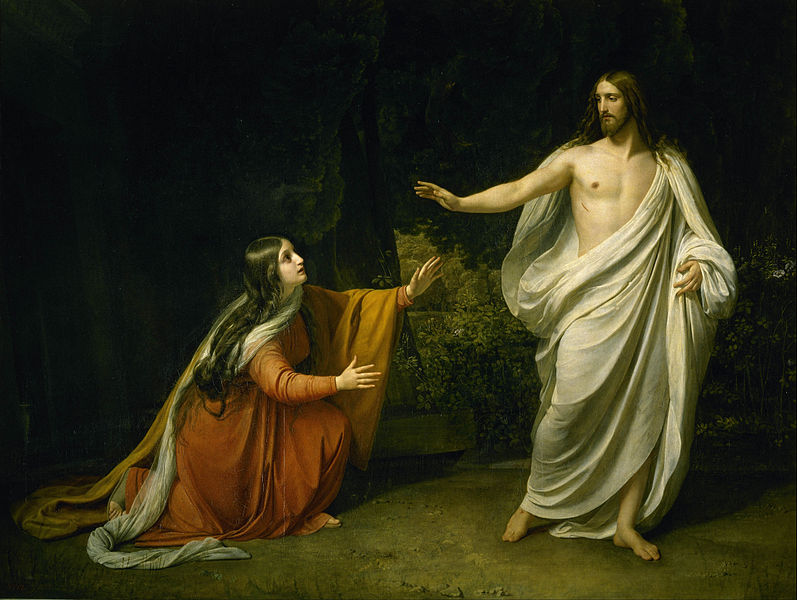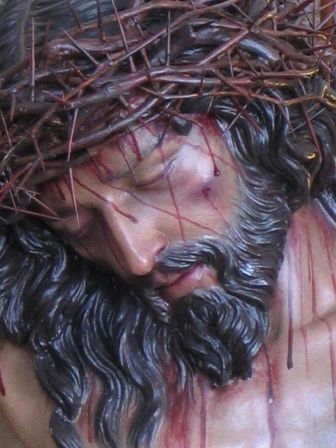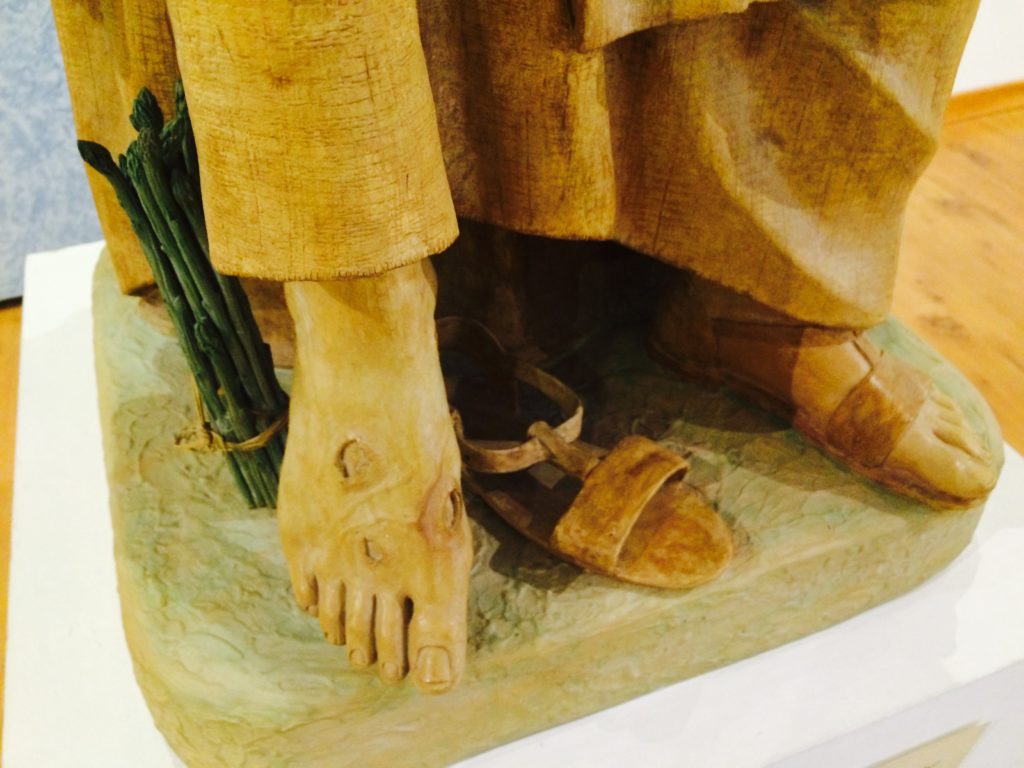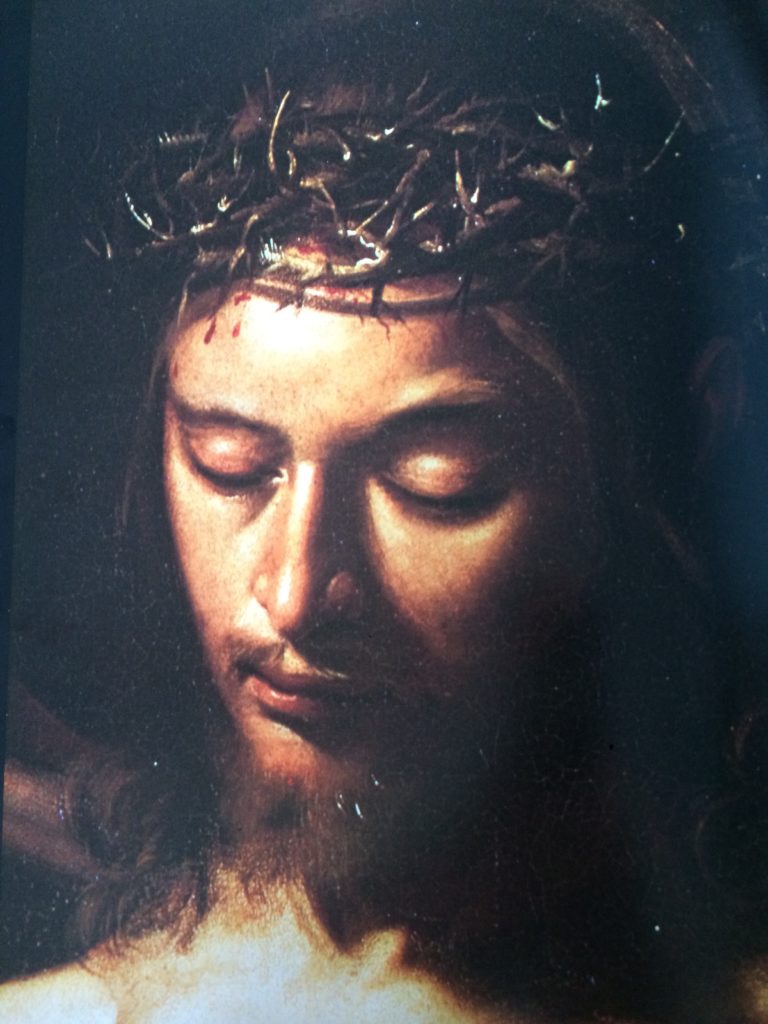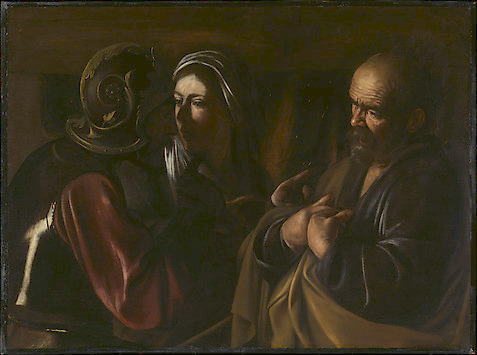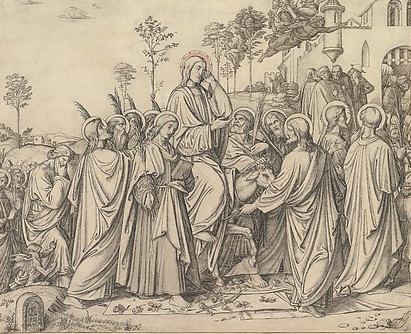Praying the Chaplet of Divine Mercy Contemplatively
Lord Jesus, your Divine Mercy is a medicine of immortality, an oasis of grace that heals our hearts’ deepest needs, the source of peace that overcomes the chaos, and a wellspring of serenity that gives birth to new life. We submit to your righteousness Jesus, to your mission, to the riches of your grace and love.
I would like to just pray with you simply some segments, little pieces of the Chaplet of Divine Mercy. I don’t want to pray the whole chaplet because what often happens is we immediately go into automatic pilot and we just forget about what we’re saying, and who we’re speaking to. I don’t say that to discourage our praying the Chaplet on other occasions but for today, because I really want to teach you how to pray, I will only take pieces of the prayer.
St. Teresa of Jesus, is the great teacher of prayer, the mother of spiritual souls, and the Doctor of the Church in terms of contemplation. There’s no greater teacher about the spiritual life of prayer than her, and she herself says, “It’s better to play one Our Father well, than twenty haphazardly.” That’s how I want to pray this Chaplet of Mercy, to just walk you, with Jesus, and through the prayer, to the heart of Jesus of Nazareth as our Good Shepherd.
The beautiful prayer inspired by the Holy Spirit to St. Faustina, brings us before the reality of the cross and resurrection. Through it we pray,
You expired Lord Jesus but the source of life gushed forth for souls and the ocean of mercy opened up for the whole world. Oh fountain of life, unfathomable Divine Mercy, envelop the whole world and pour yourself out upon us. Oh blood and water, which gushed forth from the heart of Jesus as a fountain of mercy for us, I trust in you. Oh blood and water, which gushed forth from the heart of Jesus as a fountain of mercy for us I trust in you. Oh blood and water, which gushed forth from the heart of Jesus as a fountain of mercy for us, I trust in you.
When the side of Jesus Christ was pierced by the lance, this was the body piercing that opened up paradise. His sacred heart spilled forth water and blood and that was the opening of heaven’s floodgates, the opening of the temple. In the old covenant there was only one church, one temple, only one sacred place where God’s people assembled to praise and worship to sacrifice, and that was in Jerusalem – Zion. That temple built by Solomon, the wise man, was inspired by God. He gave the instruction on what he wanted it to look like, and how he wanted to be worshiped in terms of having a right relationship with him. Only the priests, after much purification, would be permitted to go with in the Holy of Holies, that most sacred center within the temple behind the veil. Only once a year would he do that, on the Day of Atonement, the day of at-one-ment.
Jesus as our high priest also became our victim and when his body, which is the true temple of true worship of the Father, was torn open – in him, with him, and through him we became true worshipers of the Eternal Father, in spirit and truth. When his flesh was torn open on the cross, especially his heart, as the last blow after he had given up his last breath, the veil of the heavenly reality that blocks humanity from union with our God was wide open when his heart was split by the spear.
The floodgates, the river of redemption, through the power of his precious blood, opened up on the world so that we as the book of Hebrews says, ‘May have clear confidence complete access to the heart of God that we may draw near to the throne of grace to receive grace for timely need and every provision to overcome every problem by the power of his Providence who promises to be present to us, and grant us the grace that we need to overcome all things in Christ, who strengthens us.
Our greatest strength is prayer and one of most privileged places to pray is before Jesus in the exposed Blessed Sacrament. The first prayer that we pray is the Our Father. The most important part of that prayer is the first word – Father. It takes time before we can come to that place of being able to really worship God in his Holiness as Father. But that is the sacred center coming to discover the beauty of life, to know the holiness of God, and to know that he who is greater than our wildest dreams calls us, adopts us as part of his own family and shares his life with us.
Our Father, who art in heaven, hallowed be thy name. Thy kingdom come, thy will be done, on earth as it is in heaven. Give us this day, our daily bread, and forgive us our trespasses, as we forgive those who trespass against us, and lead us not into temptation, but deliver us from evil. Amen.
And then we honor Mary, whom Jesus gave us at the foot of the cross as his prized earthly possession, the one that he honored perfectly in fulfillment of the fourth commandment. We can never honor Mary as much as Jesus honored her. We can never love Mary as much as Jesus loved her, and he loved her so much that he didn’t want her to be alone. He knew that in her humanity, she would be utterly brokenhearted at seeing Christ’s heart ripped open.
In order to console her, he left her his best friend, John the Beloved. He told John, ‘Behold your mother. Take her into your heart, take her into your home, take care of her; Let her be your mother as she was a mother to me. At that moment, John stood as proxy for all those would become Jesus’ intimate friends
If Jesus had other blood brothers, there would have been no need to entrust his mother to John. But because Jesus was not only the firstborn but the only child of Mary, he entrusted her to his beloved disciple as a sign and symbol of entrusting all of his disciples to his mother.
Let us honor Mary, so that by honoring her, she may help us to truly worship Jesus, to truly do whatever he tells us, as she said to the disciples at Cana and to truly experience a transformation of the water of our simple ordinary life, to become more and more filled with the supernatural life of God’s love in the Holy Spirit.
Hail Mary, full of grace, the Lord is with thee. Blessed art thou amongst women and blessed is the fruit of thy womb Jesus. Holy Mary, mother of God, pray for us sinners, now and at the hour of our death, Amen.
Now let us sing in our hearts. We have reason to rejoice because God’s blessing and mercy is upon us. When somebody is really in love, they can’t help but be joyful. When someone is really in love, they can’t help but have a melody in their heart, a new song that wells up inside of them. When somebody’s in love, they cannot stop themselves from singing, from praising, from thanking, even if he can’t sing, even if he can’t hold a note, even if it’s just humming. Yet he does it all with spontaneity, and with freedom.
Think and reflect about what in your life holds you back. What are your fears, insecurities, reservations, prejudices, inhibitions, and wounds? What are the things in your lives that hold you hostage and bind you? Try to identify it.
Whether you’re already working through something or not, try to be open to the Lord. Ask yourself, ‘What are the areas in my life where I can grow in what it means to be more pleasing to You? Where I can grow in what it means to truly experience, believe, and live the truth that I am your beloved? What are the areas in my life where there’s something about my inner freedom that’s being inhibited?’
Do this in the secrecy of your own thoughts. Unite those thoughts to Jesus’s heart and allow the lights, the rays of the heart of Jesus’ Divine Mercy to shine upon your life, especially any aspect of your life that is still in the shadows, and that still hasn’t been exposed to the light of God’s face. Expose everything, the most needy part, the most broken or dirty part, whatever it might be, expose it to the light of God’s Merciful face. Allow your wounds to be bathed in the rays of his heart where there is love and mercy itself.
Have you ever suffered anything that has not yet been united to Jesus’s passion? Each time you say, “For the sake his sorrowful passion, have mercy on us and on the whole world” unite everything, every challenge and suffering to his passion that it may take on supernatural value and meaning and bring a greater good into your life. It doesn’t matter how embarrassing it may be; there’s nothing the Lord can’t handle; there’s nothing he will condemn, provided you give it to him.
In sacred Scripture, the Lord says to his people 365 times to ‘be not afraid.’ Jesus says, ‘Come to me and I will give you rest.’ After a long life of trying to seek God and in other ways, St. Augustine discovered that our hearts are restless until they rest in him. It’s a blessing to discover that restlessness because we can become so easily distracted, sad, and even satisfied with those distractions. But to find that restlessness, to discover that emptiness in all the things that the world can offer, and then to take refuge in God – is a great victory.
Let us allow our lives to be completely enveloped in love, the light of the Lord’s heart and Divine Mercy.
SOURCE: Soquel Retreat, 2017. Transcribed by Teresa Linda, ocds
Copyright 2017, Father Robert Barcelos, OCD


